Maradona, soccer’s flawed genius, dead at 60
Diego Maradona, the dazzling Argentine soccer star considered among the greatest of all time on the field and the most outrageous off of it, has died.
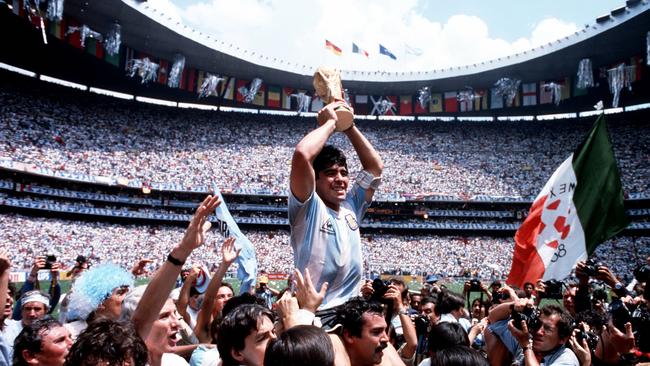
Diego Maradona, the outlandish and dazzling Argentine soccer star considered among the greatest of all time on the field and the most outrageous off of it, died following a cardiac arrest. He was 60.
News of his death was confirmed by Argentina’s national soccer federation. Maradona had undergone surgery to remove a blood clot from his brain earlier this month. He had also struggled for decades with drug abuse and weight issues.
Argentina will honour Maradona with three days of national mourning, the government announced.
“You took us to the top of the world. You made us immensely happy. You were the greatest of all,” Argentine president Alberto Fernandez, a supporter of Maradona’s first club, wrote on social media. “Thanks for having existed, Diego.”
During a whirlwind career that saw him win a World Cup and be expelled from another in disgrace, Maradona became soccer’s favourite flawed genius. For all of his brilliance with his feet, his most famous goal is one he scored illegally with his hand. He changed games with his control of the ball on the field, yet could barely manage his life away from it.
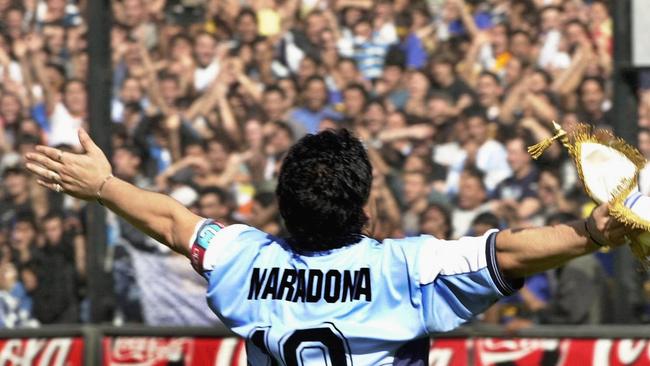
His friends included, at various times, Sicilian mobsters and communist dictators. His enemies: any soccer official who disagreed with him, the entirety of England, and often himself. Maradona was so full of contradictions that the pinnacle of his career — the 1986 World Cup — came in the midst of his yearslong cocaine addiction.
As the late Uruguayan writer Eduardo Galeano once put it, Maradona was “the most human of the gods.” At 5-foot-5 and occasionally overweight, Maradona never looked like a world-beating athlete, even during his prime in the 1980s. But with his low centre of gravity and unparalleled instinct for dribbling, he could twist and turn through defences like no one else. The ball seemed tethered to his feet, even as his body swelled and injuries hobbled him through 20 years and six clubs.
While his place among the legends of the game has never been in question, the debate over Maradona’s precise ranking in soccer’s pantheon has lasted for decades. Was he the greatest of all time, or did that distinction belong to the Brazilian Pelé?
Pelé won three World Cups to Maradona’s one, but Maradona also left South American club soccer for the more competitive European leagues with Barcelona and Napoli. Pelé’s club career never crossed the Atlantic. The two are so often mentioned in the same breath that even FIFA, world soccer’s governing body, couldn’t settle the question when it came time to award its Player of the Century in 2000. Pelé finished at the top of the vote among FIFA members only for Maradona to crush Pelé in FIFA’s internet poll.
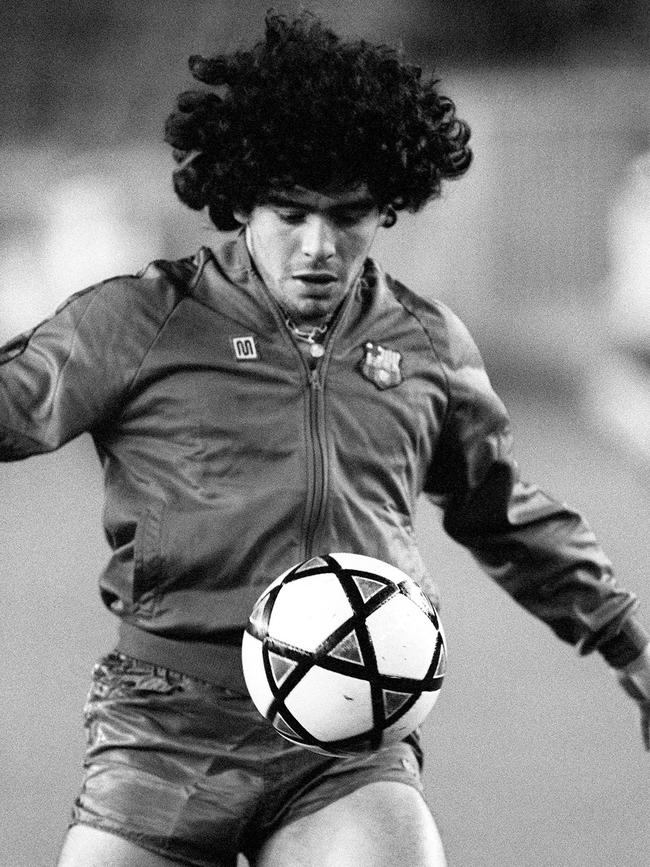
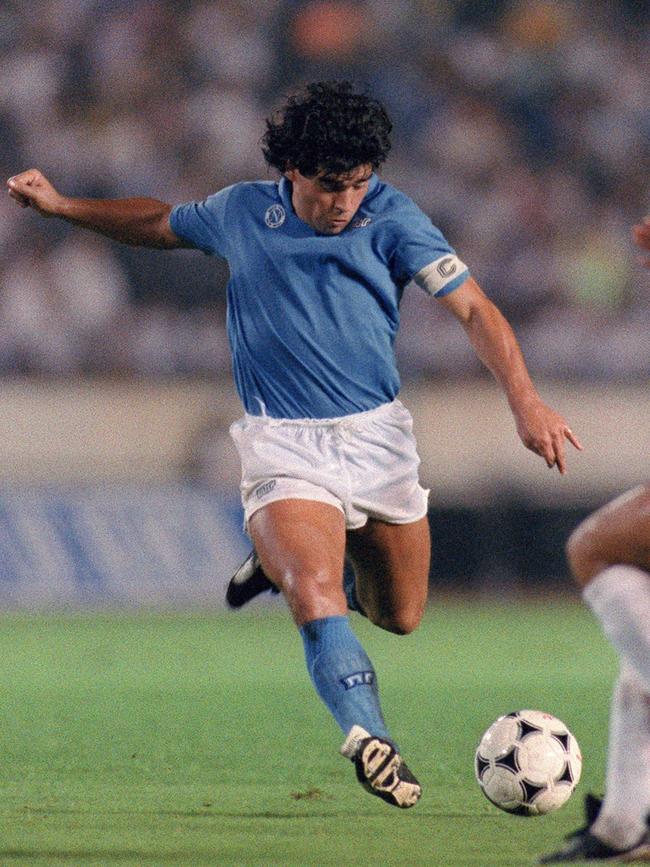
FIFA compromised by sharing the award, dubbing Maradona the internet Player of the Century. Maradona, never quiet about feeling slighted, stormed out of the room before Pelé could collect his own trophy.
“My mother believes I am the best,” he said in Doha, Qatar in 2005. “And most people believe my mother.”
Diego Armando Maradona was born on October 30, 1960 in a slum on the outskirts of Buenos Aires. The fifth of seven children, Maradona showed early on that he could master a ball better with his feet than most could with their hands. His trickery dazzled local scouts and coaches so much that his local club, Argentinos Juniors, handed him his professional debut 10 days before his 16th birthday.
In five years there, the mop-haired kid known as “El Pibe de Oro” (The Golden Boy), scored 116 goals in 167 appearances. That earned him a big-money move to Buenos Aires’ most rabidly supported club, Boca Juniors.
By 1982, barely a year later, Barcelona had broken the bank to sign him for what was then a world-record transfer fee of around $US5 million.
Maradona didn’t last long there either. “The idiosyncrasies of the Catalans,” he wrote in his autobiography, rubbed him the wrong way. It would take another record fee — $US8 million in 1984 — for him to land at Napoli, where fans turned him from star player into a living god.
“Life in Naples was incredible,” Maradona wrote. “I couldn’t go out on the street because they loved me too much. And when the Neapolitans love you, they really love you!” Over seven years, he repaid the supporters’ adoration with two league titles and a UEFA Cup.
In the middle of that dizzying spell came the 1986 World Cup, where a single game — a single five-minute spell, in fact — turned into a microcosm of Maradona’s entire career.

His opponent that day was England with a place in the World Cup semi-finals on the line. The game was tied 0-0 early in the second half when Maradona challenged the England goalkeeper for a high ball. The goalkeeper reached, but somehow the 5-foot-5 Maradona beat him to it and the ball wound up in the net. What the referee had missed in the noise of Mexico City’s Azteca Stadium was that Maradona had used his hand to punch it home. Maradona called his deception the Hand of God.
This being three decades before the World Cup introduced instant replay, the call couldn’t be challenged. Maradona’s excuses for the gesture would later expand from divine inspiration to avenging the recent Falklands War. He even corrected himself, saying that it shouldn’t in fact be called the Hand of God, since it was all “the hand of Diego.” Maradona’s second goal that day, just four minutes later, required no such explanation.
In one of the greatest moments of virtuosity the World Cup has ever seen, Maradona picked up the ball inside his own half of the field, danced away from two defenders and took off. His short legs carried him past two more England players and around the goalkeeper to score the decider in the 2-1 victory.
“For the first time in my career I felt like applauding the opposition scoring a goal,” former England striker Gary Lineker told FIFA.com.
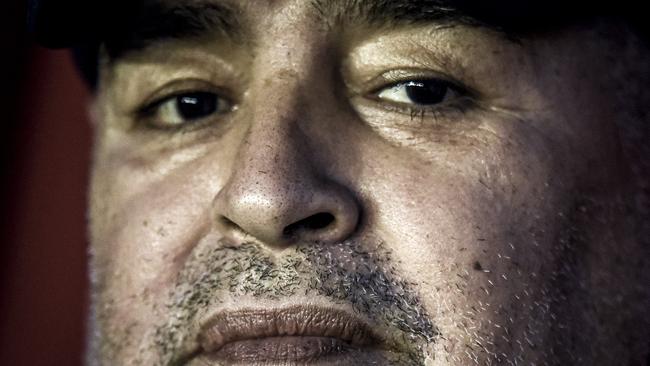
Argentina would go on to lift the World Cup, the second in its history, and still its most recent triumph. Maradona would never hit those heights again. In 1990, Argentina fell 1-0 in the final against Germany. And four years after that, in his first World Cup after a 15-month suspension for testing positive for cocaine, he was thrown out of the tournament entirely, this time following a positive test for ephedrine.
“At that point, I didn’t even want revenge,” he wrote, insisting that he was cleaner at the 1994 World Cup than he had been in years. “My legs had been cut off, my soul destroyed.” By then, Maradona’s career and personal life were in an ever more controversial spiral. He had been accused of links to the Neapolitan underworld. He had cultivated a friendship with Fidel Castro — to the point of having Castro’s face tattooed on his leg. He had bounced from Naples to Seville and back to clubs in Argentina. His playing days ended with another positive drug test at Boca Juniors in 1997.
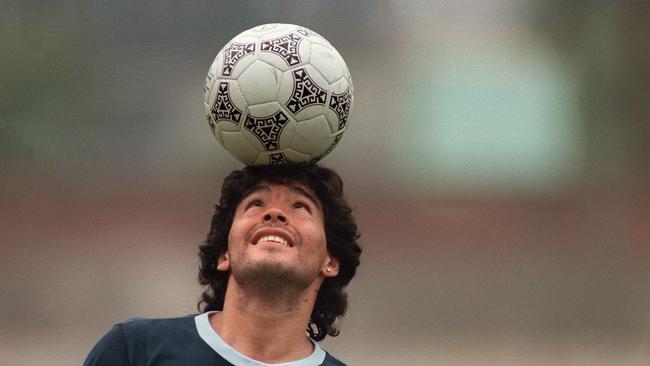
Maradona later tried his hand at management, without great success. That didn’t prevent him from being handed the reins to Argentina’s national team for the 2010 World Cup, where the ride lasted until a 4-0 defeat to Germany in the quarterfinals.
A decade of bouncing around from the Persian Gulf to Mexico later, Maradona was back coaching in the Argentine league and providing outrageous newspaper copy anytime he opened his mouth. His 60th birthday last October turned into the latest retrospective of his wild and electric career. Of course, he was asked again about the Hand of God, as if his view had changed in the past 34 years.
It hadn’t.
“I dream of scoring another goal against the English,” he told the magazine France Football. “This time with the right hand.”
The Wall Street Journal

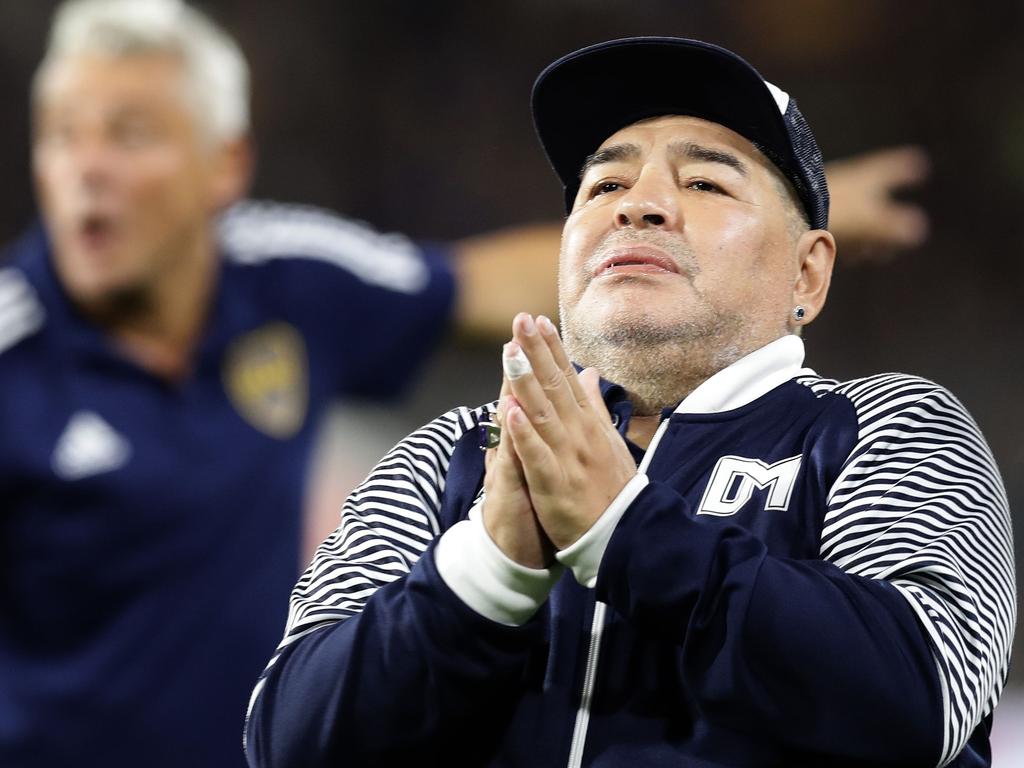

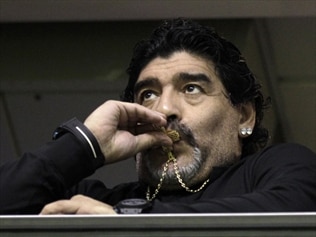
To join the conversation, please log in. Don't have an account? Register
Join the conversation, you are commenting as Logout